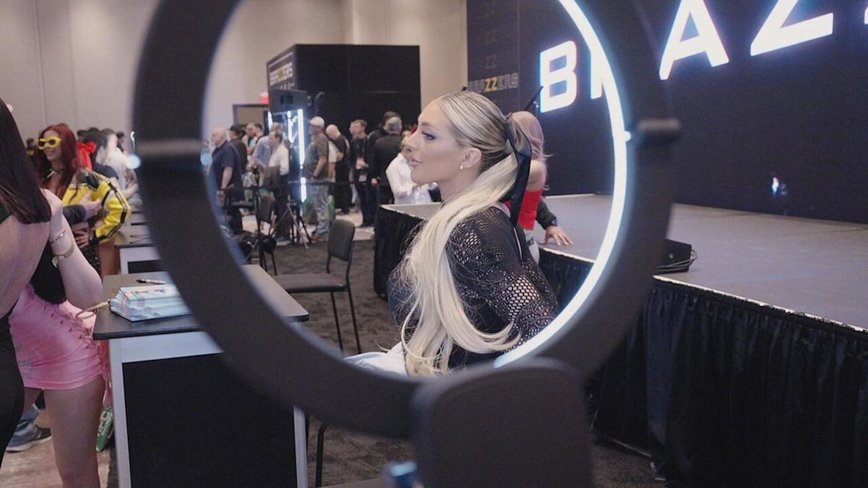
Porn Industry And Parent Groups Face Off Over Online Age Verification on OnlyLikeFans

Adult Content and First Amendment Rights
For Cherie DeVille, a top-tier star in the adult entertainment scene, accessible online pornography is not only a business boon but a First Amendment right. "I love this job. It's very good business for me," says DeVille, a former physical therapist turned sex worker with a massive following on social media.
However, Dawn Hawkins, a mother and advocate from Virginia, sees the pervasive reach of porn as a threat to family values. "How can we teach our children about healthy intimacy when they're exposed to content promoting the opposite?" she questions. Hawkins, who heads the National Center on Sexual Exploitation, is pushing for stricter content regulations.

The Looming Supreme Court Decision
The debate over online pornography is heading to a pivotal moment as the U.S. Supreme Court prepares to rule on whether states can enforce age-verification standards for adult websites. A favorable ruling for age checks could reshape how adults in the U.S. access explicit material, introducing a new layer of protection for minors.
“It's not if, but when my kids will see pornography. This is a reality,” Hawkins states, highlighting the urgent need for more robust protective measures.
Currently, many adult sites lack paywalls or verification checks, making explicit content easily accessible. As the porn industry grows, with studios and creators proliferating, the conversation around safeguarding children intensifies.
Technology Meets Privacy Concerns
Advocates for age verification argue that new technology makes the process secure and non-invasive. Iain Corby of the Age Verification Providers Association emphasizes how apps can confirm users' ages without storing personal data. "You can prove your age using just your phone," Corby explains.
Yet, privacy remains a major concern for many. The American Civil Liberties Union (ACLU) and actors like Ken Fields argue that such laws infringe on adult freedoms and privacy rights. "Kids will find a way; you don't ban something because of potential misuse," Fields argues.

Industry and Legal Perspectives
While some in the industry support protective measures, others worry about the precedent this sets for adult rights. "This should terrify you," DeVille warns about the potential overreach of government intervention.
As the Supreme Court deliberates, all eyes are on how the decision will impact both the protection of minors and the freedoms of adults. Hawkins remains hopeful, calling for shared responsibility in keeping explicit content from kids. "The burden can't only be on parents," she stresses, urging for common-sense measures to shield children.















